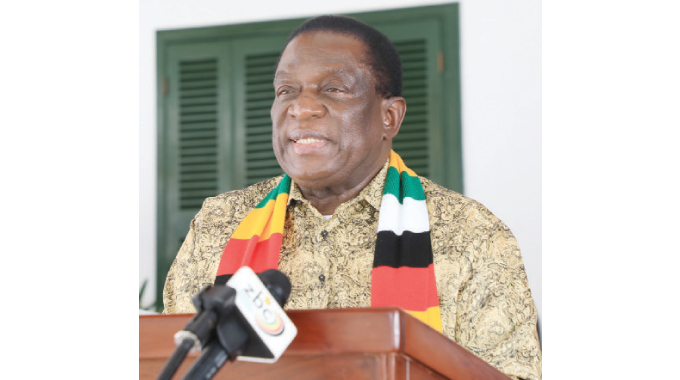
The Sunday News

Limukani Ncube, Editor
THERE is ample literature in support of the fact that people would understand information better in their indigenous language than in a foreign language, no matter the length of time the foreign language has been with them (Ngugi et al, 1986).
Furthermore, scholars say there are also countless studies which have confirmed the effectiveness of mother-tongue or indigenous language for instructional purposes. They argue that it does not matter the level of corrosion or corruption a native language has suffered as a result of the influence of a foreign language. Scholars say the native language still remains the language that speaks in the idiom of the people. And without using the language of the people, development will only be communicated at the people; not to the people, and not with the people.
Language is also central to the people’s culture, heritage and identity, and that is why the Constitution of Zimbabwe speaks to the preservation of culture and in some long shot, buttressing the importance of local languages. Other academics have gone further to consider language as a human right, which means “if I am Tonga I should be catered for in terms of my communication rights in that language.” Of interest is that there is a connection between language, culture, media and development.
“At the expiration of the dominant paradigm of development when development was largely viewed as economic (Rogers, 1976), the alternative paradigm that emerged was geared towards the popularisation of the development and design of campaign messages, that are supposed to be culturally sensitive, language specific and in tune with the social realities of the people of the developing world (Nwuneli, 1993).”
This suggests that the language in which a development message is disseminated is a very important aspect of the message treatment. It is posited that the indigenous language of any community is best suited for the purpose of conveying any message, whatsoever, to the said community.
The National Languages Conference in Victoria Falls last week came at the right time when the country is on a development trajectory, more so, with massive infrastructural development and a boom in social services witnessed in rural areas as well where the elderly are mostly based.
Speaking at the conference, President Mnangagwa implored the nation to harness indigenous languages as a resource to facilitate social transformation, human capital development and wealth creation.
Running under the theme; “Redefining the role of Zimbabwean languages for national development towards Vision 2030 and beyond”, the conference sought to define in detail the role and place of all officially-recognised and not yet recognised indigenous languages in national development as well as the promotion, preservation and conservation of cultural heritage.
Zimbabwe has 16 national languages, namely Chewa, Chibarwe, English, Kalanga, Khoisan, Nambya, Ndau, IsiNdebele, Shangani, Xhosa, Sign Language, Sesotho, Tonga, Tswana, Venda and Shona adopted in the 2013 Constitution.
Furthermore, cabinet recently adopted the Principles for the Languages Bill, which underpin the need for the promotion of multilingualism, respect of language rights and linguistic preference as fundamental to the process of nationalism, development of augmentative and alternative communication systems for people with impediments that inhibit communication.
“The languages of our people are a resource that should be harnessed, not only to ensure cultural diversity and inter-cultural dialogue, but to also facilitate social transformation, human capital development and wealth creation. As you are aware, indigenous languages are critical for improving social cohesion as they give our communities a sense of inclusivity while nurturing national cultural identities, pride and the dignity of indigenous people. Our languages are also an indispensable cultural heritage which is necessary for unity, education, economic well-being and mass participation,” said President Mnangagwa.

President Mnangagwa
President Mnangagwa said in light of the national development agenda, guided by the development philosophy “Nyika inovakwa nevene vayo/Ilizwe lakhiwa ngabaninilo”, indigenous languages must thus, effectively be deployed as a vital cog in the formulation, implementation and monitoring of all national development policies, programmes and activities
The National Languages Indaba was also expected to facilitate the mobilisation of stakeholders and requisite resources, for the preservation, revitalisation and promotion of indigenous languages. Last year, government translated the country’s economic blueprint — National Development Strategy 1 (NDS1)—to 15 languages in line with Government’s commitment to give all citizens access to the document.
NDS1 is the Government’s economic blueprint running from 2021 to 2025 and is anchored on devolution, decentralisation and prudent use of national resources for the benefit of all citizens. It is the second step in the Second Republic’s thrust to attain upper middle-income status by 2030 and is a successor to the Transitional Stabilisation Programme.
Information, Publicity and Broadcasting Services Minister Monica Mutsvangwa told the media that the NDS1 document was now available in Shona, Tonga, Nambya, Venda, Xhosa, Kalanga, Chewa, Shangani, Tswana, Sotho, Ndebele, Chibarwe and Ndau, Braille and Sign Language. The project was undertaken by the Ministry of Higher and Tertiary Education, Innovation, Science and Technology Development through the Midlands State University.
Indigenous languages are much more than cultural phenomena. True, they are important vehicles for cultural transmission, identity building and values creation. However, they also have the potential, like languages elsewhere in the world, to aid the communities that speak them in development. Collectively, the languages are an important resource, says Professor Kithaka wa Mberia, in his article, the Place of Indigenous Languages in African Development.



